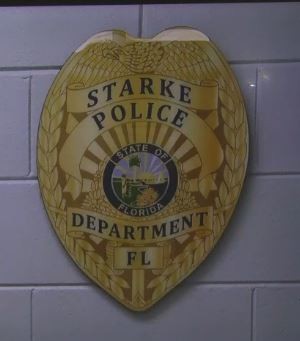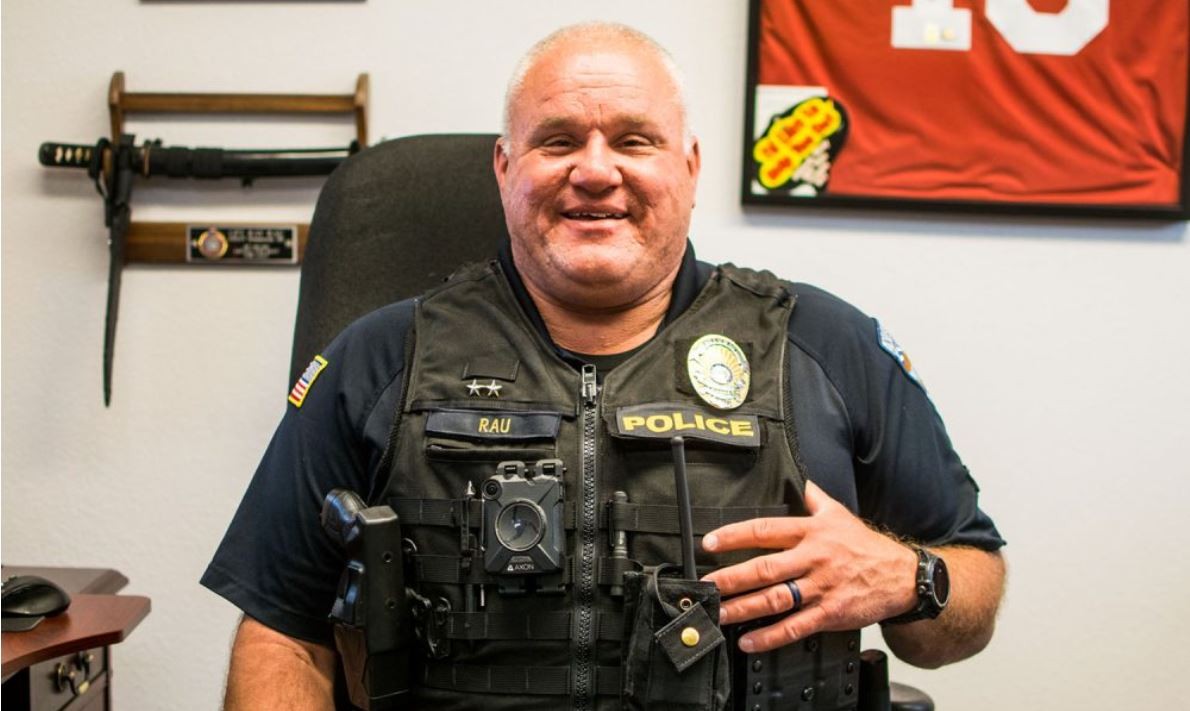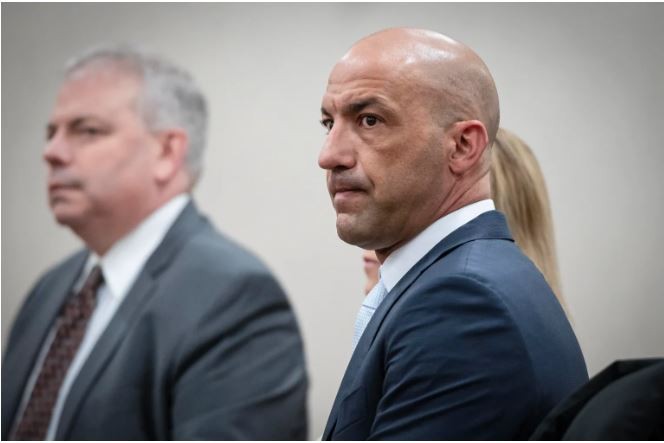Sheriff resisted Strike Force audit;
Star Tribune (Minneapolis, MN)
BYLINE: Mcenroe, Paul; STAFF WRITER
Ramsey County, MN
Bob Fletcher says he changed his mind after cash and vehicles could not be found
Ramsey County Sheriff Bob Fletcher repeatedly tried to prevent a state investigation into the financial operations of the Metro Gang Strike Force, over which his office has fiscal oversight, according to officials directly involved in the state probe that led to the sudden shutdown last week of the unit's activities.
Fletcher's office also did not undertake an in-depth review of how hundreds of thousands of dollars, personal property and vehicles were being accounted for after his office learned last fall that state Department of Public Safety investigators were raising concerns, the officials said.
In a March 3 e-mail to the strike force's advisory board of a dozen local law enforcement officials, a copy of which was obtained by the Star Tribune, Fletcher complained that "it would be a shame" if an audit stemmed from "political motives." He noted in the e-mail that the unit's former commander, Ron Ryan, now under scrutiny for activities on his watch, had an "exemplary" 40-year record of service as a police officer. Sources also said that Fletcher got into shouting matches with Public Safety Director Michael Campion, complaining that state auditors should not be involved in strike force matters. Fletcher denies those assertions.
But in an interview Friday, Fletcher acknowledged that he had opposed a state audit because he believed it would be based on politics and didn't think it was necessary. He said he would have preferred a private company to perform an audit. He also denied his office was responsible for any oversight of money seized in strike force investigations and instead blamed Ryan, his friend, for mishandling cash and confiscated property.
Fletcher said Friday that he later changed his mind on the need for a state audit, after examiners discovered that the strike force could not account for more than $18,000 cash and at least 13 vehicles. Operations suspended
Late Wednesday, strike force officers shredded documents at unit headquarters in New Brighton, according to the unit's new commander, Chris Omodt. It happened after nonpartisan Legislative Auditor James Nobles released findings of an audit that identified critical financial problems.
Realizing that the officers could have destroyed evidence, Omodt ordered all of the unit's work suspended until an independent state investigation is completed. Details of who will lead that investigation may be made public by the Department of Public Safety this week.
The Metro Gang Strike Force, with more than 30 officers, is a multi-jurisdictional task force that fights gang and drug crime throughout the metro area and receives $2 million annually in state funds. The officials who described Fletcher's effort to block the audit spoke on the condition of anonymity. They described a nearly out-of-control unit led by Ryan until he retired in October. They said that Ryan, loyal to Fletcher and employed by the Sheriff's Office, failed to manage and track the flow of cash in complex investigations. And they said that Fletcher's office should have been on top of the problems, because he'd put two of his employees in supervisory roles at the strike force: Ryan and Cindy Gehlsen, a clerk who handled paperwork and evidence.
On Friday, Fletcher distanced himself from the strike force's management, saying his office was not responsible for fiscal oversight. Instead, he blamed Ryan.
"Ron Ryan is an outstanding cop and a poor bookkeeper," Fletcher said. "Those types of financial matters are the responsibility of the commander. It wasn't our (the Sheriff's Office's) job as the fiscal agent to supervise the commander's use of seized funds."
Ryan did not return repeated calls for comment.
The possibility that strike force officers may have been involved in criminal activity such as destruction of evidence or stealing cash and property has prompted the FBI to discuss with state authorities on what role it may play as the investigation widens, according to authorities.
So far, the FBI has agreed to wait to see what the independent state investigation turns up, authorities said.
`A grave disservice'
Ryan was the public face of the strike force. He was a longtime St. Paul street cop, tough and popular among col-leagues, a hard-charger who knew firsthand what it was like to experience the ultimate loss in the police world: His son, St. Paul officer Ron Ryan Jr., was gunned down in 1994. But in October, Campion, the public safety commissioner, ordered investigators from the Office of Justice Pro-grams to review the unit's cash-handling procedures and record-keeping. They found at least 100cases that had a total of more than $130,000 in seized cash that had not been properly inventoried, according to a memo. That initial review found "significant deficiencies as to how cash and property seizures were handled at the scene, processed, documented and tracked at the strike force," Campion wrote to the strike force's advisory board in February.
One of the state officials intimately familiar with the unit's problems said, "It's unfair to lay all this in Ron Ryan's lap." The official said the unit "didn't serve Ron Ryan, and instead did him a grave disservice."
But instead of assuring that Ryan get more administrative support,as recommended by Department of Public Safety, officials involved in the strike force investigation said that Fletcher and other advisory board members went on the defensive. By February, even West St. Paul Police Chief Manila (Bud) Shaver, the board's chairman, questioned the ability of Nobles' auditors to understand the strike force's operations. "... In the end, I suspect the only thing that will be true is our investigators didn't follow the policies that were in place and weren't corrected when failing to do so," Shaver wrote in an e-mail to Fletcher and other colleagues. "When the door is opened to the legislative auditors, there is no control on what is or isn't audited. On a personal note, I ques-tion the legislative auditor's experience in evaluating an `evidence room.'" What the auditors found, Fletcher said Fri-day, prompted him to reverse his position.
"I endorse the state's involvement," he said. "Knowing what we know now, it was clear that an audit was needed, and we found things I didn't expect either."
CLOSER LOOK: METRO GANG STRIKE FORCE
History: Legislature created Metro Gang Strike Force in 2005 after dissolving the Minnesota Gang Strike Force.
Composition: Thirty-four officers from 13 local agencies, including police and sheriff's departments and U.S. Immigration and Customs Enforcement.
Funding: About $2.2 million from the Minnesota Department of Public Safety, including $400,000 for operational infrastructure such as rent and computers and the balance for grants to agencies that provide officers (about $50,000 per officer).
2008 statistics: Initiated 1,016 investigations and made 615 arrests. Eighty-four of those arrested were charged in federal court, and 215 were charged with misdemeanors. The force assisted in 438 arrests, executed 288 warrants and seized 122 firearms, 20 vehicles and $409,385 in cash.
- - - - - - - - - - - - - - - - - - - - - - - - - - - - - - -
International Association for Property and Evidence
"Law Enforcement Serving the Needs of Law Enforcement"
www.IAPE.org
BYLINE: Mcenroe, Paul; STAFF WRITER
Ramsey County, MN
Bob Fletcher says he changed his mind after cash and vehicles could not be found
Ramsey County Sheriff Bob Fletcher repeatedly tried to prevent a state investigation into the financial operations of the Metro Gang Strike Force, over which his office has fiscal oversight, according to officials directly involved in the state probe that led to the sudden shutdown last week of the unit's activities.
Fletcher's office also did not undertake an in-depth review of how hundreds of thousands of dollars, personal property and vehicles were being accounted for after his office learned last fall that state Department of Public Safety investigators were raising concerns, the officials said.
In a March 3 e-mail to the strike force's advisory board of a dozen local law enforcement officials, a copy of which was obtained by the Star Tribune, Fletcher complained that "it would be a shame" if an audit stemmed from "political motives." He noted in the e-mail that the unit's former commander, Ron Ryan, now under scrutiny for activities on his watch, had an "exemplary" 40-year record of service as a police officer. Sources also said that Fletcher got into shouting matches with Public Safety Director Michael Campion, complaining that state auditors should not be involved in strike force matters. Fletcher denies those assertions.
But in an interview Friday, Fletcher acknowledged that he had opposed a state audit because he believed it would be based on politics and didn't think it was necessary. He said he would have preferred a private company to perform an audit. He also denied his office was responsible for any oversight of money seized in strike force investigations and instead blamed Ryan, his friend, for mishandling cash and confiscated property.
Fletcher said Friday that he later changed his mind on the need for a state audit, after examiners discovered that the strike force could not account for more than $18,000 cash and at least 13 vehicles. Operations suspended
Late Wednesday, strike force officers shredded documents at unit headquarters in New Brighton, according to the unit's new commander, Chris Omodt. It happened after nonpartisan Legislative Auditor James Nobles released findings of an audit that identified critical financial problems.
Realizing that the officers could have destroyed evidence, Omodt ordered all of the unit's work suspended until an independent state investigation is completed. Details of who will lead that investigation may be made public by the Department of Public Safety this week.
The Metro Gang Strike Force, with more than 30 officers, is a multi-jurisdictional task force that fights gang and drug crime throughout the metro area and receives $2 million annually in state funds. The officials who described Fletcher's effort to block the audit spoke on the condition of anonymity. They described a nearly out-of-control unit led by Ryan until he retired in October. They said that Ryan, loyal to Fletcher and employed by the Sheriff's Office, failed to manage and track the flow of cash in complex investigations. And they said that Fletcher's office should have been on top of the problems, because he'd put two of his employees in supervisory roles at the strike force: Ryan and Cindy Gehlsen, a clerk who handled paperwork and evidence.
On Friday, Fletcher distanced himself from the strike force's management, saying his office was not responsible for fiscal oversight. Instead, he blamed Ryan.
"Ron Ryan is an outstanding cop and a poor bookkeeper," Fletcher said. "Those types of financial matters are the responsibility of the commander. It wasn't our (the Sheriff's Office's) job as the fiscal agent to supervise the commander's use of seized funds."
Ryan did not return repeated calls for comment.
The possibility that strike force officers may have been involved in criminal activity such as destruction of evidence or stealing cash and property has prompted the FBI to discuss with state authorities on what role it may play as the investigation widens, according to authorities.
So far, the FBI has agreed to wait to see what the independent state investigation turns up, authorities said.
`A grave disservice'
Ryan was the public face of the strike force. He was a longtime St. Paul street cop, tough and popular among col-leagues, a hard-charger who knew firsthand what it was like to experience the ultimate loss in the police world: His son, St. Paul officer Ron Ryan Jr., was gunned down in 1994. But in October, Campion, the public safety commissioner, ordered investigators from the Office of Justice Pro-grams to review the unit's cash-handling procedures and record-keeping. They found at least 100cases that had a total of more than $130,000 in seized cash that had not been properly inventoried, according to a memo. That initial review found "significant deficiencies as to how cash and property seizures were handled at the scene, processed, documented and tracked at the strike force," Campion wrote to the strike force's advisory board in February.
One of the state officials intimately familiar with the unit's problems said, "It's unfair to lay all this in Ron Ryan's lap." The official said the unit "didn't serve Ron Ryan, and instead did him a grave disservice."
But instead of assuring that Ryan get more administrative support,as recommended by Department of Public Safety, officials involved in the strike force investigation said that Fletcher and other advisory board members went on the defensive. By February, even West St. Paul Police Chief Manila (Bud) Shaver, the board's chairman, questioned the ability of Nobles' auditors to understand the strike force's operations. "... In the end, I suspect the only thing that will be true is our investigators didn't follow the policies that were in place and weren't corrected when failing to do so," Shaver wrote in an e-mail to Fletcher and other colleagues. "When the door is opened to the legislative auditors, there is no control on what is or isn't audited. On a personal note, I ques-tion the legislative auditor's experience in evaluating an `evidence room.'" What the auditors found, Fletcher said Fri-day, prompted him to reverse his position.
"I endorse the state's involvement," he said. "Knowing what we know now, it was clear that an audit was needed, and we found things I didn't expect either."
CLOSER LOOK: METRO GANG STRIKE FORCE
History: Legislature created Metro Gang Strike Force in 2005 after dissolving the Minnesota Gang Strike Force.
Composition: Thirty-four officers from 13 local agencies, including police and sheriff's departments and U.S. Immigration and Customs Enforcement.
Funding: About $2.2 million from the Minnesota Department of Public Safety, including $400,000 for operational infrastructure such as rent and computers and the balance for grants to agencies that provide officers (about $50,000 per officer).
2008 statistics: Initiated 1,016 investigations and made 615 arrests. Eighty-four of those arrested were charged in federal court, and 215 were charged with misdemeanors. The force assisted in 438 arrests, executed 288 warrants and seized 122 firearms, 20 vehicles and $409,385 in cash.
- - - - - - - - - - - - - - - - - - - - - - - - - - - - - - -
International Association for Property and Evidence
"Law Enforcement Serving the Needs of Law Enforcement"
www.IAPE.org


